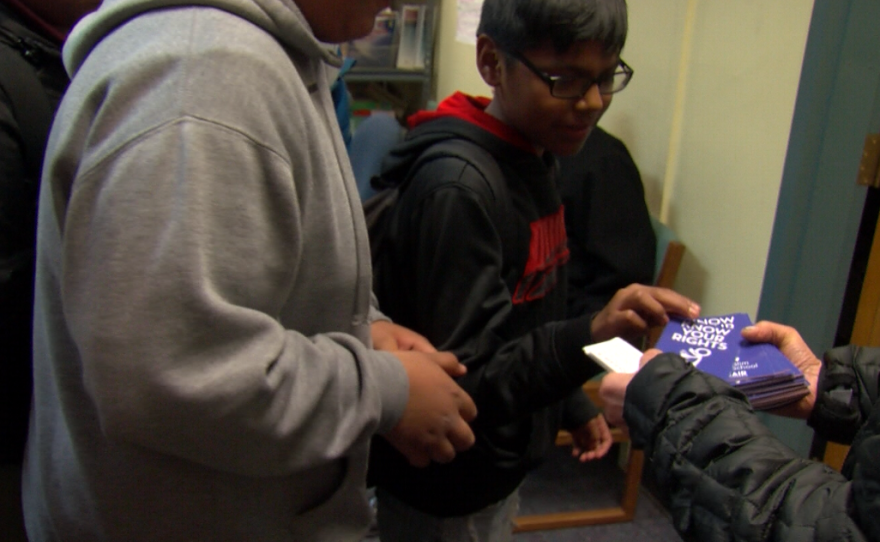Schools already offer broad-based programs to prevent bullying. Is it constitutional to offer additional training to protect a specific religious group?
That was the question at the heart of a federal court hearing in San Diego Tuesday.
A parent group is trying to stop San Diego Unified from partnering with the Council on American-Islamic Relations, or CAIR, to prevent bullying of Muslim students. The district began working with CAIR to inform students and teachers about Muslim culture after a CAIR survey showed California’s Muslim youth were being bullied because of their religion.
“We don’t have a problem with an anti-bullying policy,” said Theresa Mendoza, arguing on behalf of the plaintiff, Citizens For Quality Education. “The district already has one in effect. But an anti-Islamophobia policy is simply kowtowing to CAIR.”
The smoking gun, she said, is the district’s own data, which shows just two Muslim bullying incidents in 2016. That’s compared with 11 for Jewish students. Mendoza said the evidence — or the district's lack thereof — points to an unconstitutional religious preference.
“Can’t a district take into account national events?” Judge Cynthia Bashant asked Mendoza during the hearing. The partnership formed in 2017, after a tumultuous election cycle that put people from Muslim countries in political crosshairs and gave rise to reports of hate crimes.
RELATED: San Diego Muslim Community Reacts To Travel Ban Validation
“I don’t think they need to,” Mendoza said. “They need to address their own district and the things happening here.”
“And close their eyes to what’s happening in the world?” Bashant asked.
“We can’t rely on the accuracy of the national news,” Mendoza said.
Bashant posed the same question to district counsel Michael Sullivan, who argued school officials are obliged to take precautions to protect students.
“They don’t have to wait until a kid is run over by a bus to address issues with the crosswalk,” he said, adding that it may actually be problematic if the district were to suspend its conversations with CAIR.
“It would be inappropriate for the district to exclude CAIR, or any other organization, based on its religious beliefs,” he said.
RELATED: Report: California Hate Crimes Jumped In 2017, Though Rare
Based on Tuesday’s hearing, Bashant will decide whether to temporarily block San Diego Unified’s work with CAIR until she can rule on its constitutionality. She may also throw out the case all together.
The district has already adopted a more cross-cultural program after hearing from the plaintiffs at school board meetings. It partnered with the Anti-Defamation League and asked CAIR to instead play an advisory role alongside other stakeholders. It then incorporated the books CAIR had recommended into a broad, multicultural set of materials for teachers and students to access.
Citizens For Quality Education has pressed on, however, because emails show the district was communicating with CAIR as recently as February.
The attorneys involved in the case said they don’t know when the judge will issue her ruling. The federal courts are flooded with cases — many of them also asking for answers about safety and multiculturalism amid political change in the United States.






